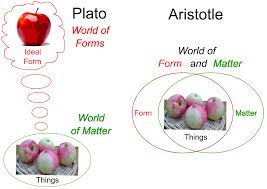Universals in Medieval Philosophy 2022 Best

For this assignment we will explore the problem of universals in Medieval Philosophy. Question 1.4 The Problem of Universals in Medieval (and later) Philosophy 1. Explain, as best you can, the Problem of Universals; and then state (and critique) the main philosophical (metaphysical) theories that claim to answer questions about universals
Universals in Medieval Philosophy
Question 1.4 The Problem of Universals in Medieval (and later) Philosophy 1. Explain, as best you can, the Problem of Universals; and then state (and critique) the main philosophical (metaphysical) theories that claim to answer questions about universals. Please follow the following template. First, you should explain, as best you can, what questions theories of universals are meant to answer. According to Crumley, for example, they are (1) attribute agreement and (2) abstract reference. Explain what he means, with some short quotes from his just-published book An Introduction to Metaphysics.
Universals in Medieval Philosophy
Attribute Agreement refers to our ability – in thought and speech – to speak of an “element” or “property” (such as redness or courage) as occurring in many different places (that is, in many different individuals or particulars) at the same time. (Crumley, p. 107) It is then argued that accepting the existence of universals is the best way to explain our ability to speak of Attribute Agreement. (Ibid., p. 113) Common nouns – or any substantive word or concept – such as “horse” or “duck” seem to refer not only to all members of those classes (horses and ducks) but sometimes seem also to refer to the KINDS themselves.
Universals in Medieval Philosophy
This is known as Abstract Reference. (Crumley, p. 113) It is then argued that accepting the existence of universals is the best way to explain our ability to utilize Abstract Reference in our thought and speech. (Ibid., p. 113) Second, you should say what universals are usually said to refer to (among those who believe they exist). There are two primary categories that almost all philosophers accept as potential referents of “universals.” These two categories are (1) properties (sensory and any other kind, including relational properties to other entities) and (2) kinds (i.e. the classes of things that a particular entity (or event, process, etc.) belongs to.
Universals in Medieval Philosophy
For example, you have very many properties and also you belong to many different kinds (or classes). You have a material composition (so you have the property of corporeality), you are a life form (and thus have the property of being animate), you are an animal (no offense … just meaning “not a plant”), you are a homo sapiens, you are a person, you are a human being, you are both a moral entity (i.e. object of moral concern) and a moral agent (an entity that can be held morally responsible for its intentional actions), you are a college student, you are a college student currently studying at USD, etc., etc., etc. https://youtu.be/yStlBaGAFjg
Attached Files
|


 +1 650 405 4067
+1 650 405 4067

